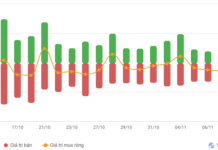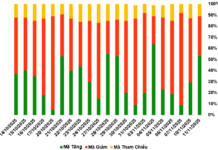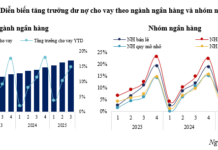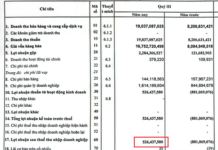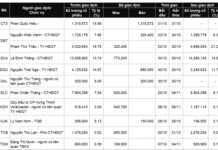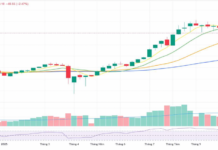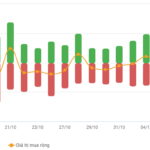## Clarifying Market Principles for Land Price Determination
At the workshop, “Applying the Land Price Table according to the 2024 Land Law: Issues and Solutions for the Sustainable Development of Vietnam’s Real Estate Market,” held on January 10, Assoc. Prof. Dr. Nguyen Quang Tuyen, Vice Chairman of the School Board and Head of the Economic Law Department at Hanoi Law University, shared that the current land law regulations have introduced several innovations. While this is a breakthrough, it also puts pressure on local governments.
“We are implementing Resolution 18, removing the land price framework and only applying the land price table. Notably, the responsibility for establishing the land price table will be assigned to the People’s Committees of the localities. This means that the localities will take charge, make decisions, and be accountable. Along with this, there are laws, decrees, and circulars. Looking at the overall picture, we can see that the legal corridor is improving and becoming more suitable. However, when we delve into the details, there are still many limitations,” said Dr. Tuyen.

Assoc. Prof. Dr. Nguyen Quang Tuyen, Vice Chairman of the School Board and Head of the Economic Law Department at Hanoi Law University. |
According to Dr. Tuyen, there are five principles for land price determination, including the market principle, but no one explains what the market principle entails. This makes it challenging for local governments to apply.
“Currently, the real estate market has ‘extinct’ the segment of properties priced at 20-30 million VND per square meter, making it impossible for salaried workers to afford a house. Therefore, I believe it is necessary to clarify what the market principle entails. Secondly, what criteria should be used to determine the market principle? This also needs clarification. And we need to emphasize that there is no principle for determining land prices based on market prices. Following market prices is incorrect; instead, we should follow the ‘market principle,’ ” Dr. Tuyen stated.
Dr. Tuyen further mentioned that land valuation is challenging due to the lack of accurate and standardized input data and information.
“I agree with the view that we cannot set a uniform land price, especially for commercial and service land. Projects in localities with developed socio-economic conditions should have different prices… Depending on the specific project and location, different price levels should be applied. Only then can we gradually resolve the current land price conundrum. Otherwise, land prices will become a bottleneck rather than a resource,” asserted Dr. Tuyen.
Prof. Hoang Van Cuong, a member of the National Assembly’s Finance and Budget Committee, suggested that when creating the land price table, it should be based on market value (which is stable) rather than volatile factors like prices. It is essential to distinguish between the price and the market value of land when establishing the land price table.
“The land price table should be announced annually to accurately reflect the efficient distribution, transaction, and utilization of land. The managing agency needs to build a digital data foundation and incorporate information on the price and land tax of each land lot per year into this data repository… to minimize favoritism and personal interests in land valuation,” said Prof. Cuong.
How Should the Land Price Table Be Adjusted Reasonably?
To ensure that the land price table aligns with market prices, Mr. Tran Kim Chung, former Deputy Director of the Central Institute for Economic Management, proposed focusing on accurate and transparent land price information gathering. Specifically, information should be collected from diverse sources, such as actual transactions, land auctions, and consulting activities. Moreover, this process should be continuous to keep up with market fluctuations. Additionally, a stringent control mechanism is necessary to ensure the authenticity of the information, especially in declaring land buying and selling prices.
 Overview of the workshop on January 10. |
“There needs to be an overall design for allocating land price zones to create a practical land price map. We must overcome the uniformity in the zoning and subdivision regulations for land prices. It is essential to develop weighted indices that are close to reality,” emphasized Mr. Chung.
Assoc. Prof. Dr. Dinh Trong Thinh suggested providing detailed regulations on land price determination methods and guiding appropriate valuations for each type of land and region while ensuring flexibility and consistency. He also recommended offering more detailed instructions on collecting, managing, and updating market data, including actual transactions, auction results, and compensation values.
To expedite site clearance and attract more economic sectors to invest in the locality, Dr. Thinh proposed that land lease prices should be designed with flexibility, considering the characteristics, purpose of land use, and nature of the projects.
For residential land, such as apartments and planned residential areas with permanent ownership, a land price of 100% according to the land price table should be applied.
For commercial and service land (construction of offices, hotels, shopping centers, and tourism), with a 50-year land lease term, the rent should be calculated at around 40-50% of the land value according to the annual land price framework.
For areas dedicated to strategic and high-tech industries, competitive land prices are necessary to attract domestic and foreign investment, ranging from 20-40% of the land price in the land price table.
For community-serving land, such as building schools, hospitals, cultural centers, amusement parks, and social infrastructure, special incentives should be applied. The land rent could be as low as 5-20% of the annual land price table value.
Mr. Vuong Duy Dung, Deputy Director of the Housing and Real Estate Market Management Bureau, pointed out that the high land prices have impacted the implementation of real estate projects and the market prices of properties.
“From the perspective of the Ministry of Construction, we have conducted numerous studies and reported to the government on the impact of land price increases on real estate prices. Through these studies, we have found that land price increases undoubtedly affect real estate prices, and it is essential to determine the specific ratio and extent of this influence. Therefore, we need to take an objective and scientific approach to assess this impact accurately and then propose appropriate solutions to effectively control and adjust the real estate market,” said Mr. Dung.
Ngoc Mai
– 18:04 01/10/2025
The Great Land Auction Fiasco: Eradicating the ‘It’s Just a Deposit’ Mentality
“With the new land price list, the starting price in land auctions will be closer to the market value, and the deposit amount will increase accordingly. This will bring about a more professional and healthy auction process, doing away with the chaos witnessed in the past,” says real estate legal expert Nguyen Van Dinh.
“Completed Projects Left Unsold Due to Lack of Land Appraisal, While Some Areas Witness a Doubling of Land Prices Within Just Six Months”
This is a statement from Mr. Nguyen Quoc Hiep, Chairman of GP. Invest and the Vietnam Association of Building Contractors, at the forum “Sustainable Development of the Real Estate Market – Awarding the Livable Project Certification 2024” organized by the Enterprise Forum on the morning of November 27th.
The New Land Price List in Bac Giang: Residential Land Prices Soar up to 120 Million VND per square meter
The People’s Committee of Bac Giang province has issued Decision No. 40/2024, amending and supplementing several provisions of Decision No. 72/2021, dated December 21, 2021. The new decision pertains to the issuance of regulations on land prices in the province for the period of 2022 – 2024.

